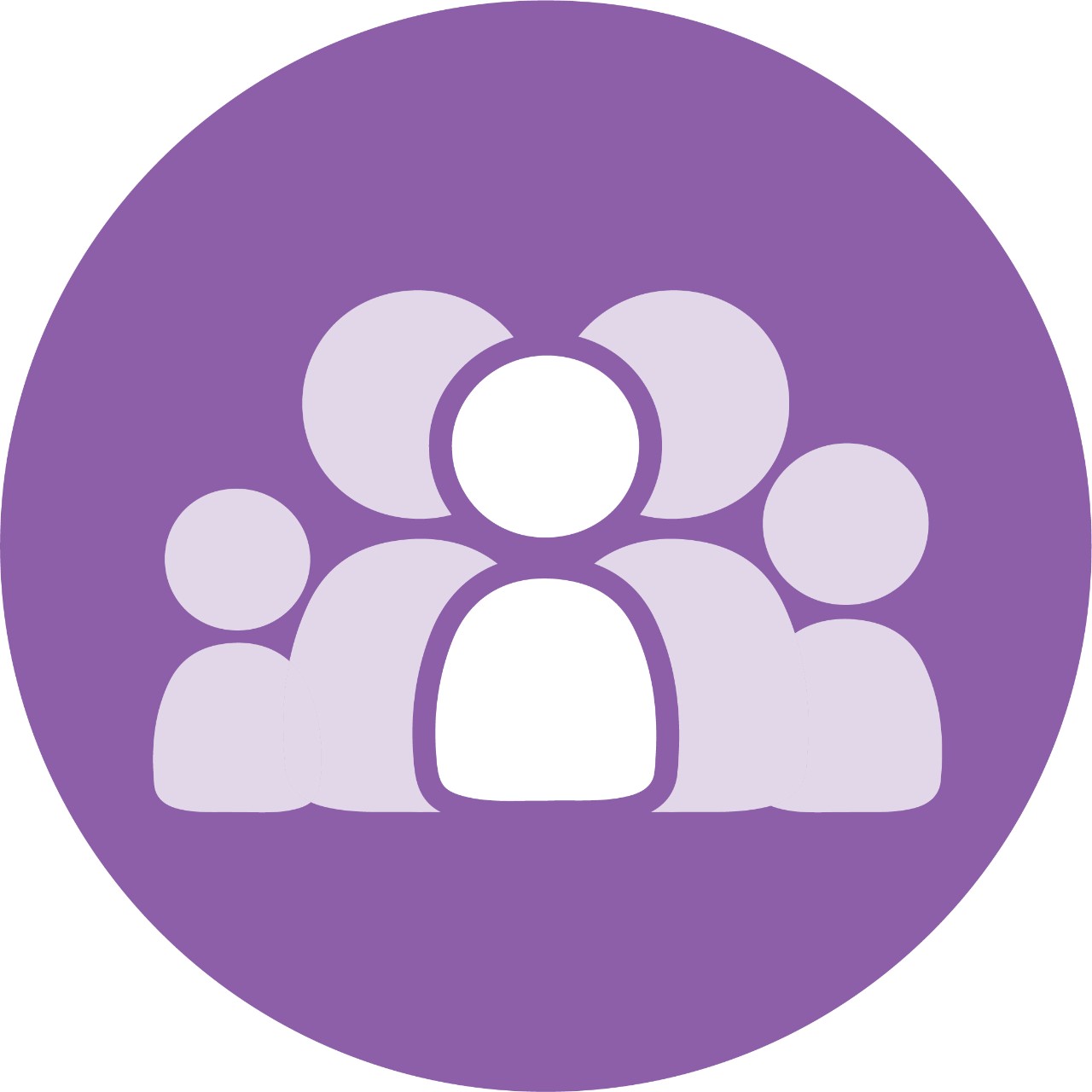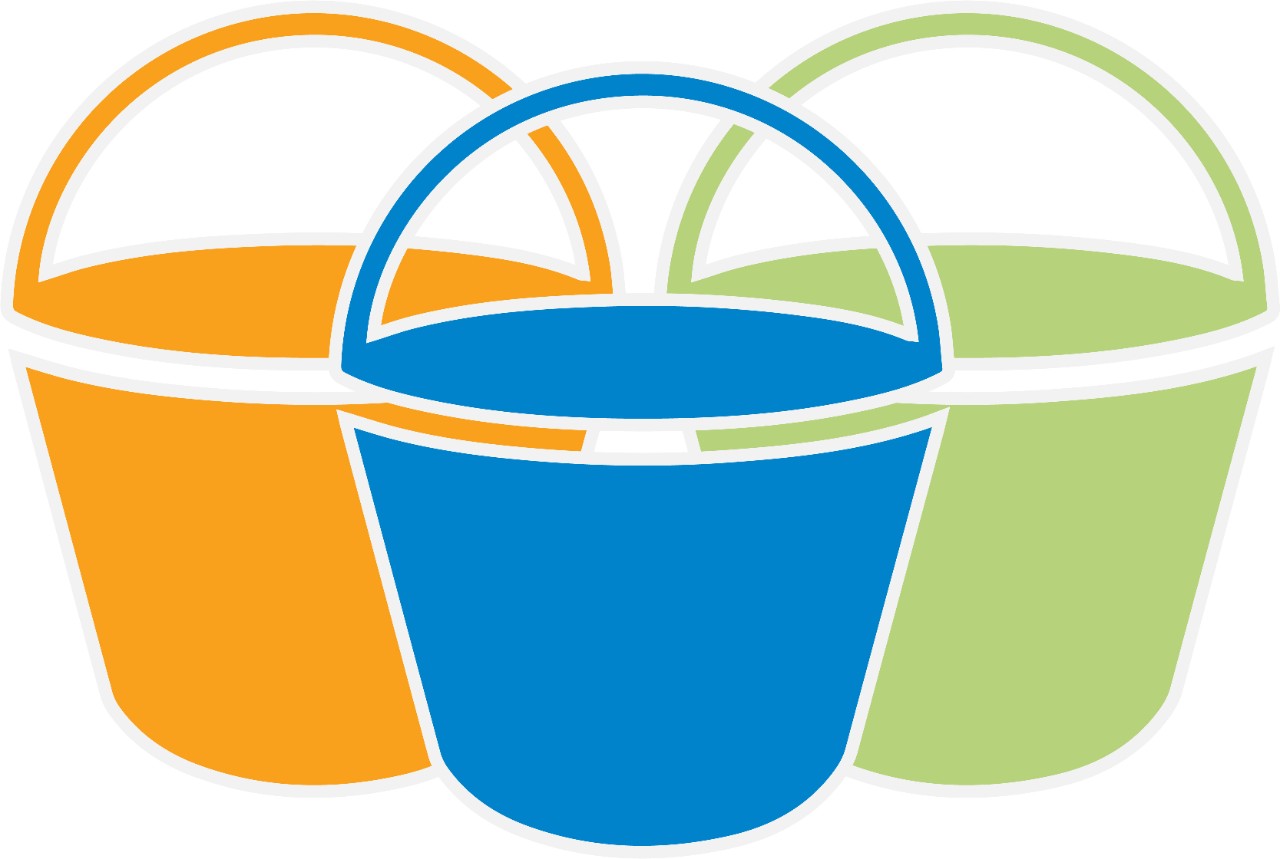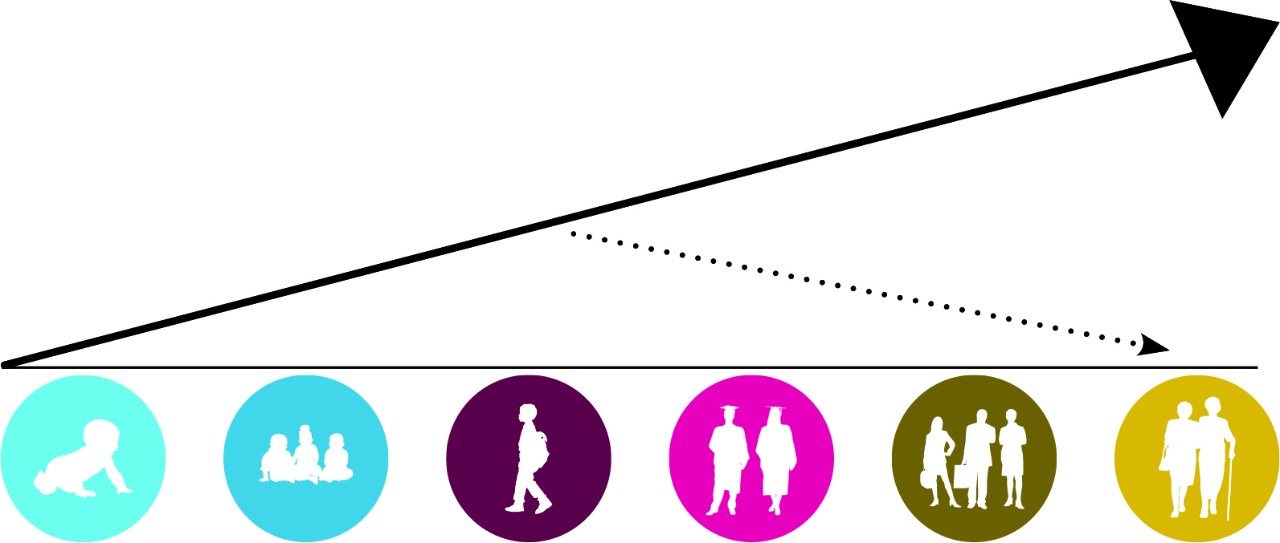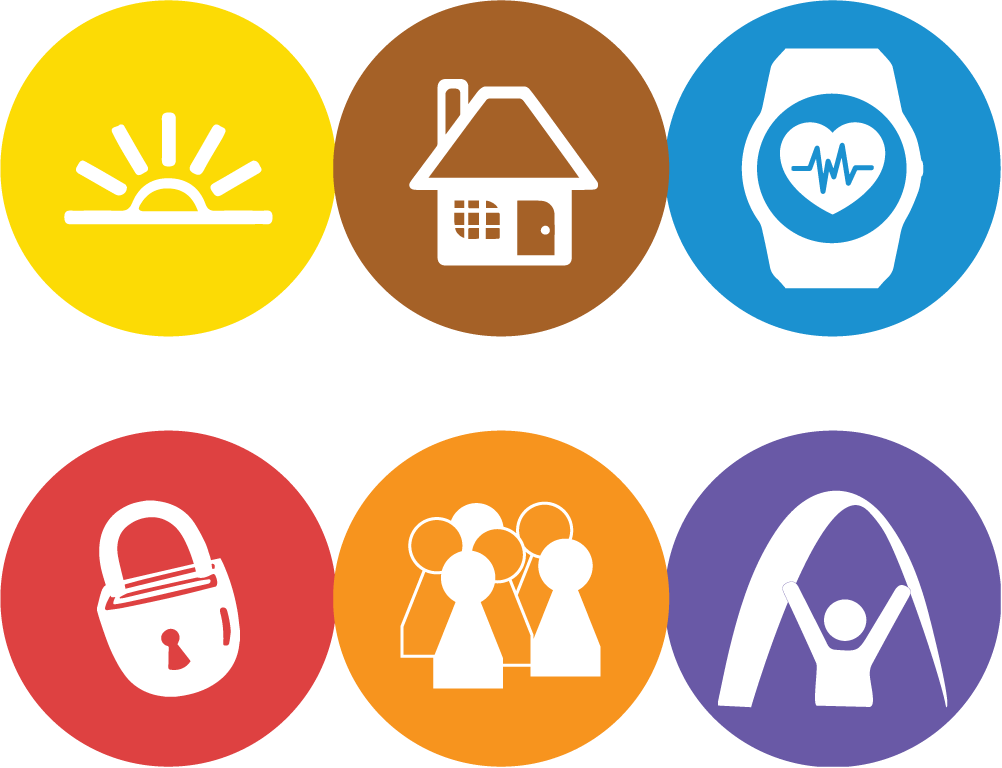Breaking Ground 93 - Reimagining Supports for Families of Tennesseans with Disabilities
by Emma Shouse Garton, Communications Director, TN Council on Developmental DisabilitiesBackground
In 2013, the Administration on Intellectual & Developmental Disabilities funded a grant to identify and implement policies and practices that will help support families with members with intellectual and developmental disabilities across the lifespan. A national “Community of Practice” was established, a learning “community” that began with five states, including Tennessee, and then expanded in 2016 to include 11 other states across the country. In Tennessee, the Council on Developmental Disabilities and the Department of Intellectual and Developmental Disabilities (DIDD) have partnered together to coordinate this initiative.
The grounding principles of this learning community are known as the “LifeCourse Framework”*. The core belief guiding this work is that all people and their families have the right to live, love, work, play and pursue their life aspirations. The efforts of this community of practice are leading a national conversation about how states and families can reimagine what it looks like to truly offer meaningful supports across the lifespan for all members of a family experiencing disability. The goal of this work is to maximize the capacity, strengths and abilities of families so they are able to nurture and support all individual members, including the person with a disability, to lead meaningful lives.
[*Note: Charting the LifeCourse™ and LifeCourseTools.com is a project of the University of Missouri–Kansas City Institute for Human Development, Missouri’s University Center for Excellence in Developmental Disabilities Education, Research and Services (UCEDD).]

The "All" or "the 100%"
All people are considered in our vision, values, policies and practices for supporting families of people with disabilities (including the over 75% of families who don’t receive paid services through the developmental disability service system).
Reframing our thinking and messaging
The LifeCourse framework brought a new perspective to Tennessee’s disability system. While Tennessee had been a national leader for many years in promoting “person-centered” thinking, organizations and systems, we realized that by only focusing on the individual with a disability, we were often overlooking the key influences, contributions and needs of the person’s family unit. We all exist within the context of our families, whether that “family” is our family of origin, our partners and children, and/or other loved ones who we have chosen to care for and be close to.
When Tennessee started on this journey in the Supporting Families Community of Practice, one primary LifeCourse concept that resonated with us was the concept of “the all”. This refers to the fact that nationally only about 25% of individuals with intellectual and developmental disabilities receive long-term disability services and supports. That means that when state systems or policymakers only focus on how we can improve the disability service system, we are overlooking at least 75% of individuals with disabilities and their families. We must find other ways to reach “all families”, and go beyond just improving disability-related services when we want to improve the lives of Tennesseans with disabilities and their families. What policies, practices and programs can help really transform our states and communities to assist families beyond that 25% of folks who are connected to the long-term service system?

Family Systems & Cycles
People exist and have reciprocal roles within a family system, which adjust as the individual members change and age.
Supporting families in TN
For the first couple of years of this initiative, Tennessee’s team focused specifically on a few areas, including building our own familiarity and expertise in using the LifeCourse principles and tools to change our own thinking.
Letting the experiences and priorities of families guide our thinking and work is a key part of the LifeCourse framework, so we also solicited feedback and stories from Tennessee families. We hosted focus groups at the TN Disability MegaConference to ask families how they were helping their loved one with a disability connect to their community, often without the support of disability services and just using their own creativity and generic community resources. For a few years, we offered a dedicated email newsletter about this initiative where we asked families about their needs and their experiences. We partnered with Vanderbilt Kennedy Center and TN Disability Pathfinder to develop a special edition of “Kindred Stories” that shared anecdotes of the successes and challenges that Tennessee families experienced around disability services, community and social engagement, employment, transportation, informal supports, future planning and other critical issues.

Three 'Buckets' of Supports that Families Need
The three strategies for supporting individuals and their families can be organized into three buckets:
- Discovery and navigation: having the information and tools you need to navigate life;
- Connecting and networking: making connections with peers and resources to help you navigate; and
- Goods and services: the tangible items you buy and use and the public and private organizations in your community that you access for support.
Another priority was sharing the message of the LifeCourse framework with our existing partners. With a focus on peer-to-peer supports for family members, we worked to inform people about the Family Voices of Tennessee “Parent to Parent” mentoring initiative that pairs parents of children with disabilities to help one another and about TABS (TN Adult Brothers and Sisters), the statewide sibling support network for siblings of people with disabilities. We also worked with the Governor’s Children’s Cabinet and KidcentralTN to expand disability resources available on KidcentralTN.com, which is a platform that can impact “ALL” families in the state, whether or not they’re connected to disability-related services.
One of the best connections the Council made through this Supporting Families initiative was with the University Extension network in the state. The University of Tennessee and Tennessee State University Extension networks have offices in every county of the state, and one of their roles is to provide families in local communities with trainings and information and resources that they need. We have built a strong partnership with the UT and TSU Extension offices by disseminating disability resources to their county agents, providing training on disability sensitivity and family experiences, and offering our office as a go-to resource when those Extension agents encounter families with members with disabilities who need help connecting to appropriate services.

LifeCourse Trajectory
Individuals and families can focus on a specific life stage, with an awareness of how prior, current and future life stages and experiences impact and influence life trajectory. It is important to have a vision for a good, quality life, and have opportunities, experiences and support to move the life trajectory in a positive direction.
Training individuals and families on LifeCourse Framework and tools
One of the main focus areas of Tennessee’s work through this initiative has been sharing the message and resources of the LifeCourse framework and toolkit with individuals with disabilities and their families. Over the past five years, we have delivered more than 40 trainings and presentations about these concepts and tools. We trained and talked to families and self-advocates on our Council, in our Partners in Policymaking and Vanderbilt’s Volunteer Advocacy Project-Transition programs, at transition conferences hosted by school districts, at family employment coalition meetings, and through a number of different family workshops and conferences coordinated by various advocacy organizations and providers.
We presented more than a dozen sessions in recent years about different areas of the LifeCourse framework at the Tennessee Disability MegaConference, the largest statewide cross-disability conference for Tennesseans with disabilities, families and professionals. In addition to spotlighting LifeCourse tools and key resources, we also used these sessions as opportunities for families to share their stories with one another and to brainstorm ways that they can build better relationships in their communities, without needing to depend on supports through the disability service system. For the 2017 annual “Think Employment” Summit hosted by TennesseeWorks - a statewide collaborative of people invested in increasing employment opportunities for Tennesseans with disabilities - the Council and DIDD developed tracks for self-advocates and family members to help them understand the employment service system, use LifeCourse tools to develop a vision for employment, learn about best practices in employment for people with disabilities, and hear employment success stories from other Tennessee self-advocates, family members and employers.

Helping professionals use LifeCourse Framework and tools
In addition to training self-advocates and families, we’ve also done outreach and training to professionals who interact with individuals with disabilities and families across the lifespan. We provided presentations and trainings on the LifeCourse framework and tools at the statewide special education conference, Statewide Employment Consortium, to DIDD support brokers and at a special retreat for DIDD case managers to focus on learning to use LifeCourse tools. The first two classes of the Leadership Academy for Excellence in Disability Services, a new intensive leadership development program created by the Council and delivered by the TN Department of Human Resources that includes representatives from all disability-related agencies in State government, have received training on how to use the LifeCourse framework and concepts to guide their work serving Tennesseans with disabilities and their families.
We also made an effort to embed some of these concepts at the systems level by hosting cross-agency “lunch and learns” about different aspects of the LifeCourse framework, including: peer-to-peer support networks for family members (self-advocates, parents and siblings); connecting families to information and systems navigation help that they need; involving families in policy and planning; and how technology can be used to support individuals with disabilities and their families. Representatives from a variety of State agencies got together at these events over the span of a couple of years to brainstorm how our system as a whole could improve in offering these types of supports to families, and to hear what other agencies do to address the needs of their customers using these kinds of strategies.
Using LifeCourse Framework to shape policy
Early on in this work in Tennessee, the Department of Intellectual and Developmental Disabilities used the LifeCourse framework and tools to evaluate their “front door” to services, what families were experiencing when they called with questions. They examined how they could revise DIDD policies and practices and support their staff to better understand family concerns to improve those experiences. They continue to provide staff working directly with families, like case managers and independent support coordinators, with resources like LifeCourse and person-centered thinking tools to have productive conversations with families and individuals about their goals for the future and what supports they need.
In 2016, before the launch of the new Employment and Community First (ECF) CHOICES program that provides long-term services and supports to Tennesseans with intellectual and developmental disabilities and their families, the Council and Vanderbilt Kennedy Center hosted two stakeholder forums for providing family and self-advocate feedback to Tennessee’s managed care organizations (MCOs) that would be running the new program. We wanted to make sure that MCO policymakers and leaders heard from self-advocates and families about their expectations and needs before the program even started, just as TennCare had developed the program based on input from families.
In creating the ECF program, TennCare used the LifeCourse framework and input not only from families currently receiving services through Medicaid waivers overseen by DIDD, but also those families outside of the service system because of waiting lists or ineligibility for services under previous criteria. New and innovative services were developed in ECF that help families and self-advocates find support, build their knowledge and skills, and connect meaningfully to their communities (i.e., Family Caregiver/Individual Education and Training; Family to Family/ Peer Supports; Counseling & assistance with health insurance, conservatorship/supported decision making, etc.; and Community Support Development, Organization and Navigation). MCOs were encouraged to familiarize their staff with the LifeCourse framework and tools, as well as person-centered planning resources. A key principle of the LifeCourse framework is that family and self-advocate voices should drive policy change and practices at every level and stage of a process, like rolling out a new disability program – and to provide families the opportunities, information and assistance they need in order to be involved in these ways.
Lessons learned, moving forward
Over the past 5 years of participating in this learning community, we have seen firsthand that the LifeCourse framework and tools resonate with both families and professionals and shift thinking in important ways. We have heard from folks in our trainings that these concepts and tools help people think about the future in a different way, problem solve and strategize about issues when they feel “stuck”, and creatively reimagine what supports for people with disabilities might look like. A major challenge of this initiative has been measuring the true long-term impact of these efforts that last beyond a training or presentation. We hope that lots of families and professionals are using these concepts and tools in their everyday lives – if you are, please let us know! The Council would love to find new opportunities to share the message and resources of the LifeCourse framework and tools. We want to continue to discover ways we can incorporate LifeCourse principles and values work into all the things our state and communities are doing to improve the lives of Tennesseans with disabilities and their families.
If you are interested in trainings about the LifeCourse framework and tools, please contact Emma Shouse Garton at emma.shouse@tn.gov.